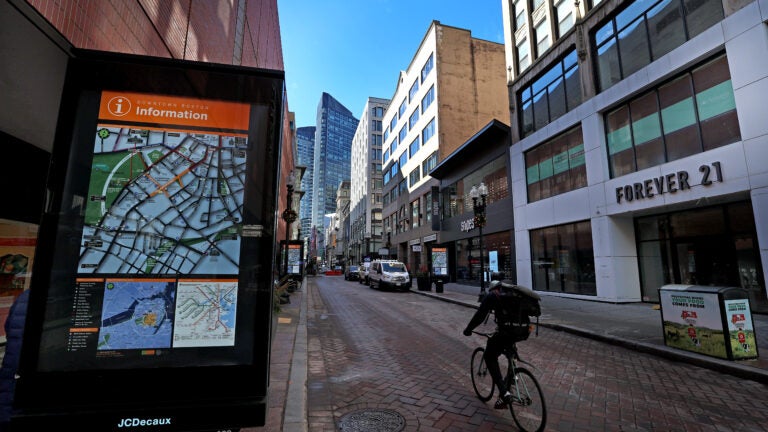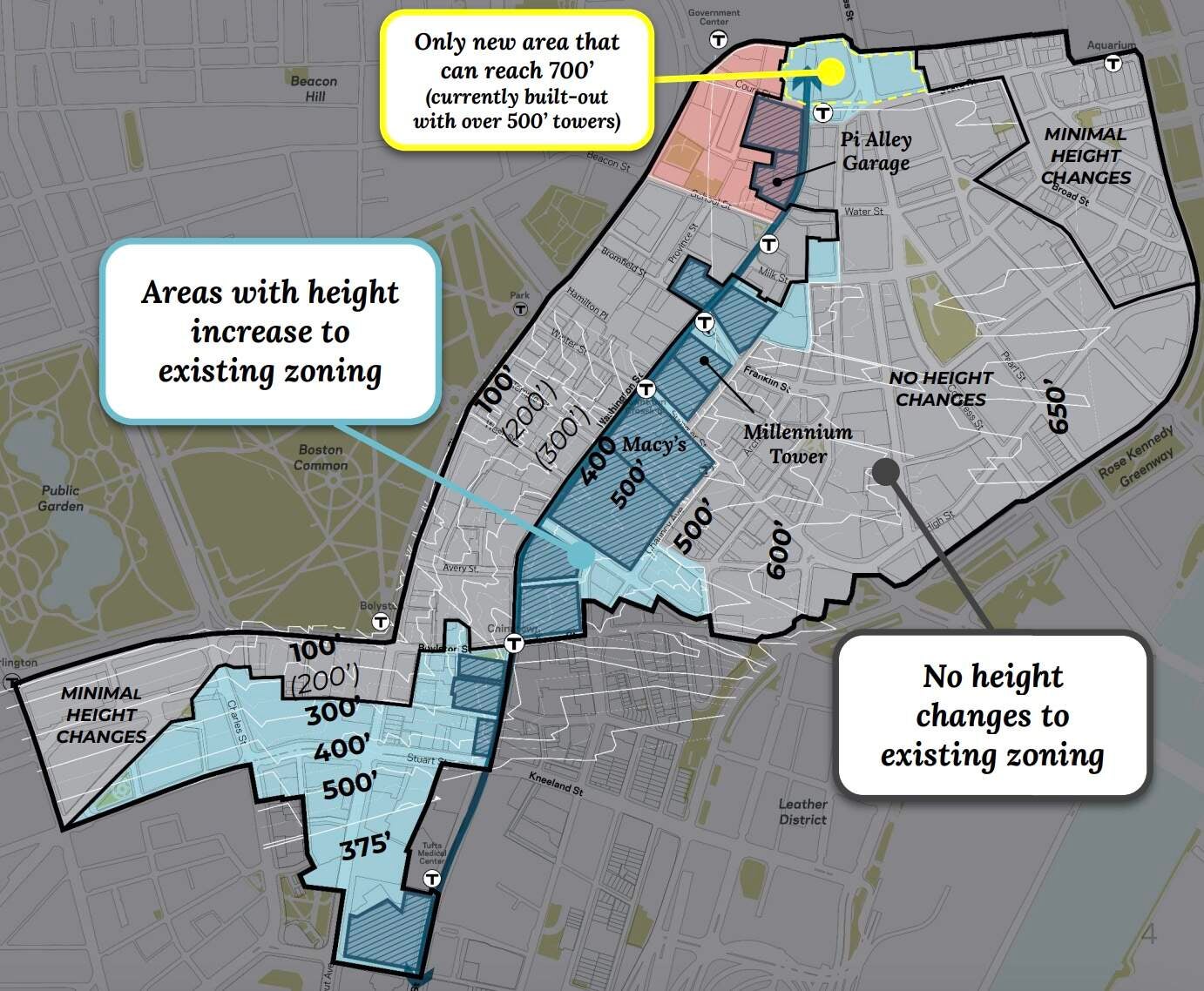Local News
The new zoning rules aim to boost housing and revitalize the city’s struggling commercial core.

In a unanimous vote Wednesday, the Boston Zoning Commission approved new regulations allowing taller buildings downtown — a key part of the city’s plan to revive the struggling commercial core.
The 10-0 vote marks the final step beyond the mayor’s signature in a close to seven-year effort to modernize downtown zoning rules.
The plan has divided the public: Critics warned it could darken beloved parks and make Boston feel more like Manhattan, while supporters argued it’s essential to bring life back to a downtown still reeling from the pandemic.
“We believe this proposal is the most balanced set of regulations we could reach and still meet the overarching goal of setting a clear vision for revitalizing downtown post-pandemic,” said Kairos Shen, the city’s Chief of Planning, at the hearing.
He continued, “It acknowledges the need for historic preservation and the opportunity for new density to advance the necessary transformation from a commercial and financial hub to a vibrant mixed-use neighborhood.”
The “Plan: Downtown” zoning will change the height limits to 300 and 500 feet near Park Plaza and Downtown Crossing along Washington Street.
City officials note that only one new area, near Washington Street and State Street, will allow for 700-foot buildings. The area already has 500-foot buildings.
The regulations also outline the state’s shadow protections for the Boston Common and Public Garden and the FAA regulations for flight paths, which supersede the city’s zoning rules.

The guidelines will allow residential use in all districts, making lab, hotel, and office space of over 250,000 square feet conditional. All residential projects will be required to have 20% affordable housing.
However, those against the new regulations, such as the Friends of the Public Garden and the Downtown Boston Neighborhood Association, raised concerns that taller buildings will cast more shadows on historic parks and dampen the historic character of landmarks in the area.
Leslie Adam, chair of the Friends of the Public Garden, urged the commission to pause and reconsider the building heights.
“The cumulative effect, project by project, we risk losing sunlight, one hour, one season, and one space at a time,” Adam said at the hearing.
Rep. Jay Livingstone, who represents parts of the district, agreed, “I fear the proposal will allow development to have significant detrimental effects,” particularly to the parks.
Livingstone said the state’s shadow laws were “porous” in the past, with the approval of the close to 700-foot Millennium Tower in 2017.
Zoning Commission chair Michael Nichols recused himself from the vote because of his ties to the Downtown Boston Alliance.
The group has supported the plan, saying it will boost foot traffic for local businesses.
“We need bodies and dollars being spent on retail,” said Commissioner Drew Leff, who represents the Greater Boston Chamber of Commerce. “That means housing and may mean some office projects and hotels in the future, but primarily, it needs the residents who support the retail.”
Sign up for the Today newsletter
Get everything you need to know to start your day, delivered right to your inbox every morning.




